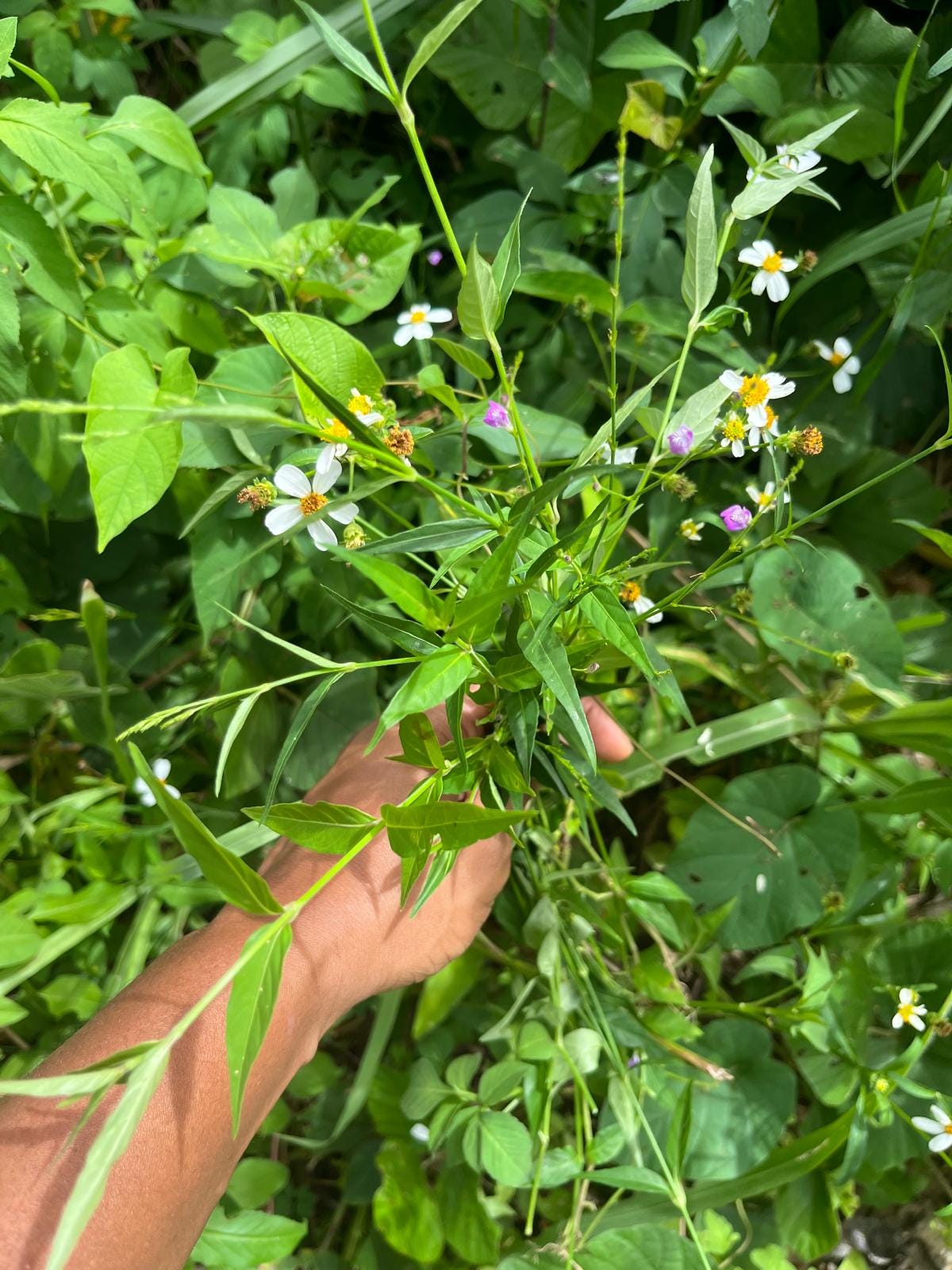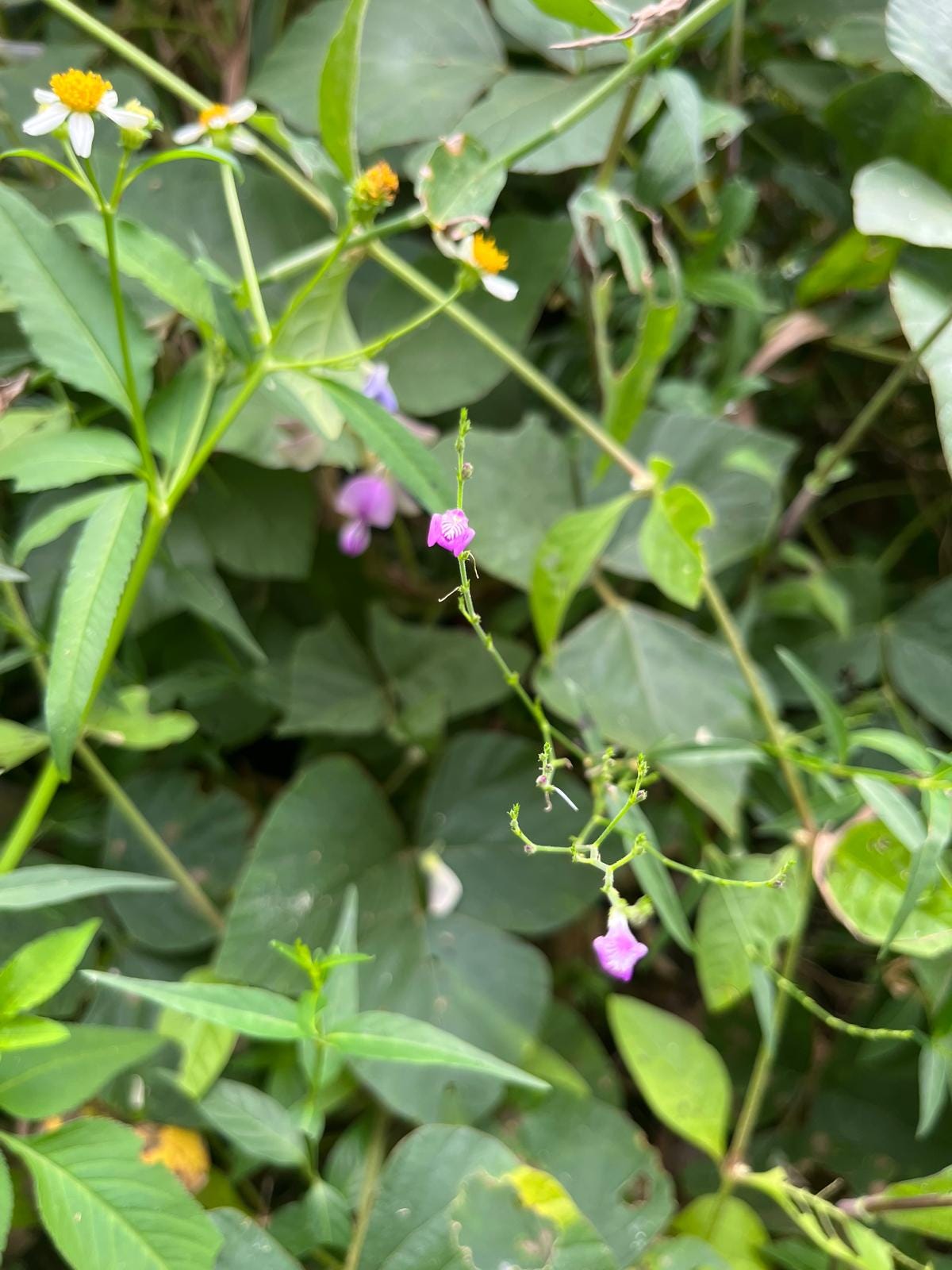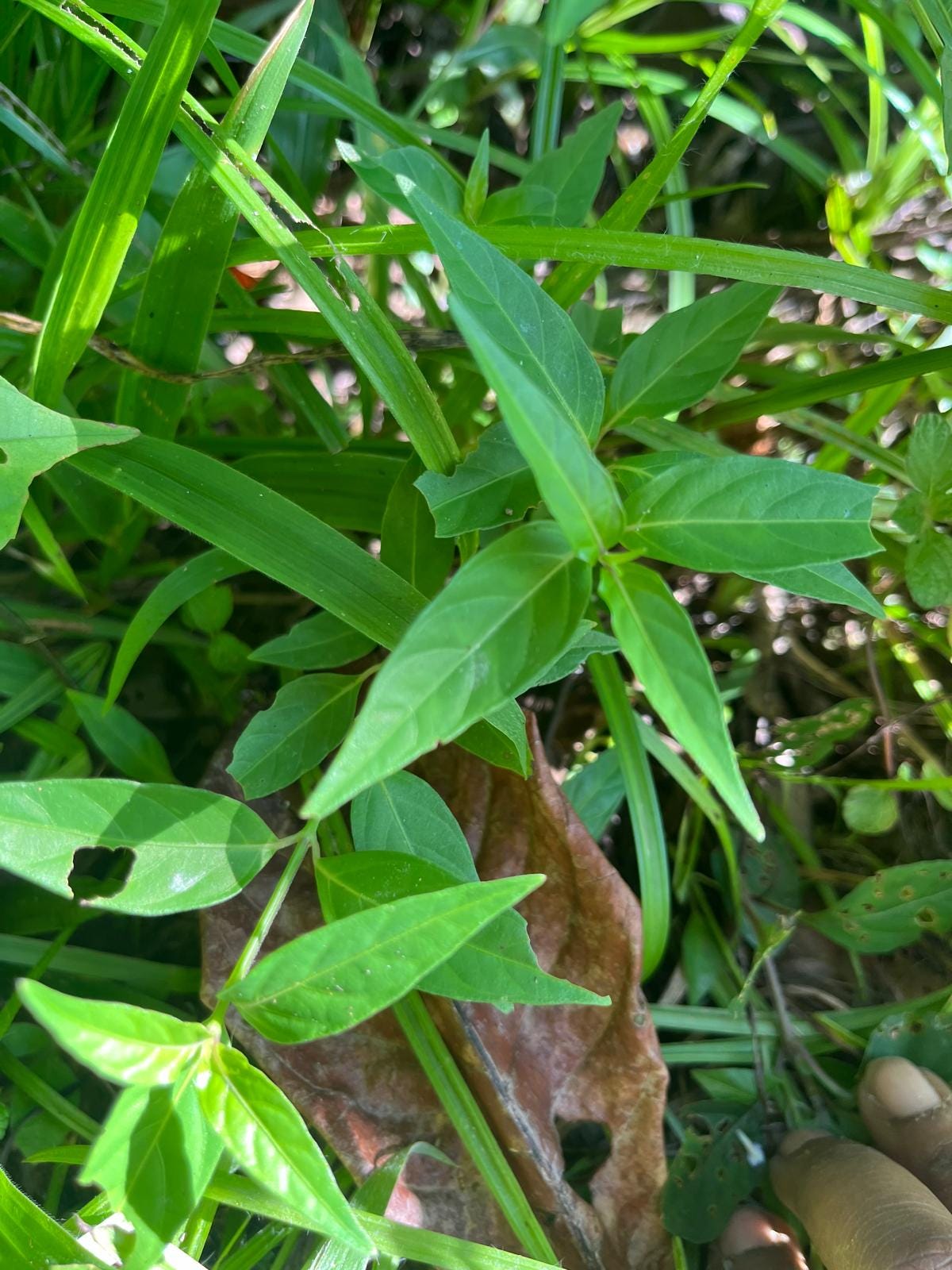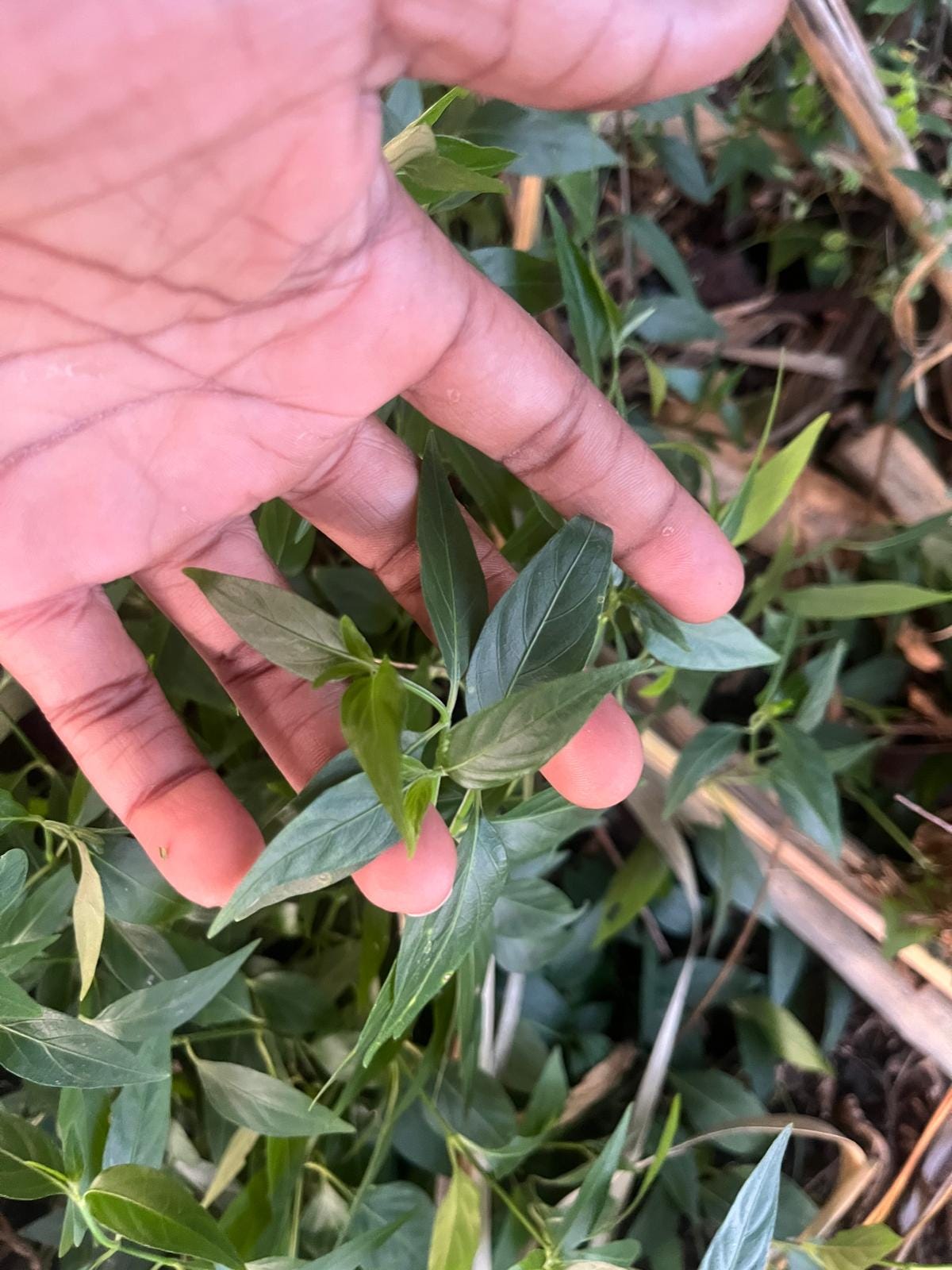Greetings!!
I have not released a substack in a little over a month because I have been deep in the throes of writing a book! The title is Caribbean Herbalism: Traditional Knowledge and Modern Healing. The manuscript is due at the end of this month and the book will be released in June 2025. I am beyond excited to share all that I have been learning and researching over the past 10 years with the world.
Here is a description of the book from the publisher’s (Ulysses Press) website:
From the forest to the pharmacy, the bush to the medicine bottle, explore how plants and traditional practices from the Caribbean have traveled around the world to help heal people of all cultures.
For millennia, people have utilized plants as foods, medicines, hallucinogens, clothing, shelter, perfumes, dyes, and even poisons. In the Caribbean, medicinal and practical use of plants began with its first inhabitants, the Amerindians. New plants and knowledge were introduced through both triangular trade with Asia, Africa, and Europe and the enslavement of Africans and Indians from Southeast Asia, culminating in the modern-day system of Caribbean herbalism.
Caribbean Herbalism tells the rich and complex stories of Caribbean people and the plants that have sustained them. Inside you’ll find:
A practical guide to a meaningful selection of herbs and their traditional uses
Botanical field notes and drawings that tell the stories of the Indigenous, African, East Indian, and European plants that inhabit the region
Culturally important traditions, remedies, and recipes
Interviews with Caribbean people
And so much more
This book offers practical tools you need to build a relationship with plants and make common Caribbean herbal remedies like bush teas, bush baths, herbal wines, infused alcohols and oils, and more!
Stay tuned for updates and ways to order the book and support! It was through the encouragement of my substack subscribers that any of this was even made possible. So I give so much thanks! You can pre-order it on Amazon, here.
In the mean time, here is a plant monograph from the book about one of my favorite herbs named Carpenter grass.
Carpenter grass (Justicia pectoralis)
Common names: Carpenter bush, toyeau,, tilo, chamba, curia
Description:
This herb is in the Acanthaceae family along with St. Johns Bush (Justicia secunda) and it grows low on the ground in shaded, wet areas like forest creeks or drains. It sets new roots as it grows and can easily be harvested and transplanted using pieces with roots on them. The dark green, glossy leaves are pointed and perfectly opposite and form a cross when looking at the plant from the top. Flowers are very small and can be white or purplish white and look like orchids. Along forest creeks, often planted in house yards. It is highly aromatic and it’s crushed leaves release a vanilla like smell due to the high presence of coumarin.
Traditional uses:
Pectoralis is a latin word pertaining to chest and this plant received that latin name because of it's strong action on chest colds and the lungs. Indigenous cultures from Peru to Brazil to Venezuela to the Caribbean have held a special relationship with this plant and even planted it in home gardens to have ease of access. I handful of plants can be boiled in water to release the healing properties, and it is drunk as a tea for cough, colds, and as a mild sedative to reduce anxiety. Another traditional method of ingestion is by boiling it down with sugar and water to make a cold medicine syrup that is a good expectorant. Some of the herbs that people in Guyana pair it with are lemongrass (Cymbopogon citratus), Santa Maria (Lippia alba), daisy (Wedelia trilobata) or sweet sage (Lantana camara). It also has some psychoactive properties, and some ancient indigenous cultures of South America also juice it to drop in the eyes or powder it to use as a snuff in order to receive some psychoactive effects.
Modern research:
The traditional uses of Carpenter bush have been corroborated by modern research. Analysis of it's constituents shows that it is high in coumarin, which for the plant acts as defense mechanism against pathogens, but for humans acts a biologically active healing compound. Coumarin is found in modern vanilla substitutes and it is a highly effective blood thinner (anti coagulent), so it should be used with caution. In this paper, it was stated that Justicia pectoralis “has several biological effects, including its therapeutic potential for the treatment of inflammatory diseases, such as asthma. However, the development of new research on J. pectoralis through modern pharmaceutical technologies and analytical protocols is essential to assure its quality. In addition, a strong collaboration between preclinical and clinical studies is still necessary for the development of an herbal medicine from aerial parts of J. pectoralis. This additional research on J. pectoralis will offer a noticeable socio-economic impact enabling the development of a new medicine from this species.” -Justicia pectoralis, a Coumarin medicinal plant have potential for the development of antiasthmatic drugs.
Personal accounts:
This is one of my Mother in Law’s favorite herbs. It reminds her of childhood, when her mother used it for many ailments and as a general wellness tea. There is a patch that grows near her childhood home that has been there for decades. She likens it to chamomile in it cure all effects and calming nature that it imbues on the body. I also heard about it from another friend whose favorite tea is a mix of Carpenter bush, Lemongrass and Cocoa mint (Peperomia rotofundila). You can use a handful of Carpenter bush, 1 or 2 sprigs of lemongrass and a small handful of cocoa mint. Lemongrass can easily overpower the flavor of a tea so it's important to not use too much if you want the flavor of other herbs to come through. I have noticed that in order to really release the active compounds, carpenter bush can be boiled for a few minutes and then I place other herbs in the pot with it to steep. The taste of coumarin and vanilla warm you from the inside out and give an almost instant sense of well-being.








Congrats on the book news!
So exciting, Aleya!
The Latin Justicia pectoralis makes so much sense. Any idea where the common name came from?